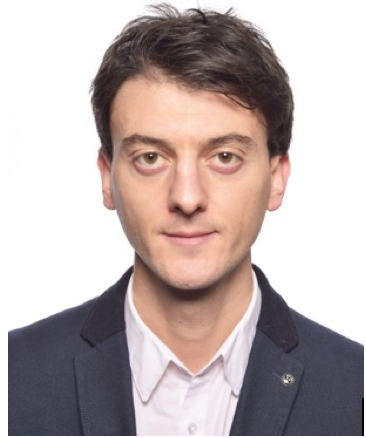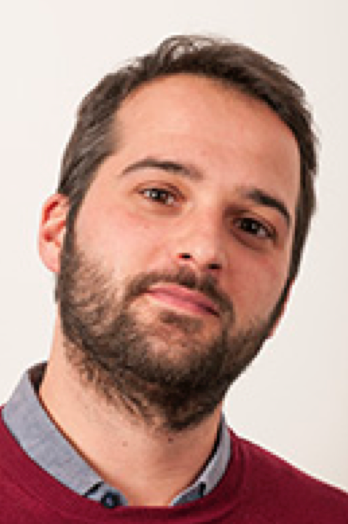
 Who gets to have a voice in the public debate? Using The Guardian’s coverage of the 2015 Charlie Hebdo attack, Andrea Felicetti and Pietro Castelli Gattinara find that women and religious groups, in particular Muslims, had limited visibility; while actors challenging the dominant securitisation narrative were similarly neglected. They conclude that greater attention must be paid to this problem of marginality in democratic systems.
Who gets to have a voice in the public debate? Using The Guardian’s coverage of the 2015 Charlie Hebdo attack, Andrea Felicetti and Pietro Castelli Gattinara find that women and religious groups, in particular Muslims, had limited visibility; while actors challenging the dominant securitisation narrative were similarly neglected. They conclude that greater attention must be paid to this problem of marginality in democratic systems.
The January 2015 terrorist attacks in Paris presented a major shock to people in France and beyond. Of the four attacks between January 7 and 9, the one at the headquarters of the satirical magazine Charlie Hebdo received the most attention, and quickly became a reference point for heated debates about the limits of freedom of speech, the nature of national identity, and the desirability of co-existence in a pluralistic world.
The goal of our research was to assess to what extent public discussions following the Charlie Hebdo shootings were inclusive and, in particular, if they featured marginality of actors and views. Our findings showed that marginality was substantial. In particular, women, minorities, and religious groups, especially Muslims, as well as all claims by actors who challenged the securitisation narratives were sidestepped. This pressed us to think of ways to tackle the problem of discursive marginality – a major yet overlooked threat to democratic life.
In our investigation, we refrained from engaging in the manifestly impossible task of tracking the debate in its entirety across Europe. We instead concentrated our attention on the case of Great Britain. In particular, we focused on what might be referred to as ‘elite debates’: articles in the printed edition of The Guardian, which has a reputation for being sensitive to contemporary debates. In so doing, we deliberately decided to look for actors whose views made it all the way to one of the most selective and influential platforms shaping contemporary public debates in the country. . We did not seek to assess the quality of the coverage. Rather, we wanted to see who was powerful enough to command the attention of a selective outlet. In short, we observed what social and political actors occupied the central stage and which ones instead had a marginal role.
We found that men accounted for more than 80% of public interventions in the Charlie Hebdo debate. The marginality of women was even more dramatic when we looked at the numbers in more detail. For instance, less than 12% of the claims made by state executive agencies (in particular, the police and the military) were by women. Claims by government actors and interventions by media actors were again overwhelmingly dominated by men. Through these findings, our research adds new evidence to studies showing that the under-representation of women across media and society remains dramatic.
As for religious actors, we found that they represented a mere 5% of those taking part in The Guardian’s debate. While we aggregated data for all religious groups, these findings speak especially to the marginality of Muslim actors in the public sphere. Despite the fact that they represent 76% of claims made by religious groups, Muslim actors intervened by and large in reaction to claims made by others. The vast majority of claims referring to religious actors are in fact concerned with Muslim actors alone (87%). Muslims are almost always the object of claims by others (about 12% of the claims) while they are very rarely engaged with — as they are the addressee in only 4.7% of the claims.
Finally, we observed that marginality does not only apply to certain groups of actors, but also to certain types of discourses. This is clear with respect to issues of national and international security, which came to dominate the Charlie Hebdo debate. Overall, pro-securitisation claims largely outnumber anti-securitisation ones: almost 80% of the total claims in the security debate were in support of increasing security domestically, and in favour of the deployment of troops against threats abroad. Interestingly, the pro-securitisation camp is overwhelmingly composed by government actors and state executive agencies. This left little space for other actors and dissenting voices. In short, a small group of powerful actors that drove the political agenda was also dominating the public debate.
Against this backdrop, one might ask whether it is possible to build a more democratic society when our debates are, in important ways, non-democratic. Moreover, we should reflect on whether the inclusion/exclusion dichotomy best serves our democratic goals. Whilst outright exclusion remains an issue, the problem we observed is not one of lack of access to a debate; instead, it is one of certain actors not being effectively heard because they are left with very little space in public debates of importance. The Charlie Hebdo debate, which has been focusing by and large on freedom of speech, seems to have been more concerned with the capacity to express oneself than with the possibility of being heard.
Scholars, commentators, and politicians sensitive to the importance of public debate in a healthy democracy should pay more attention to this problem of marginality, and more actively promote debates that minimize the extent of marginality of the most marginal participants. Striving towards this end might help us to steer away from inegalitarian debates dominated by the powerful.
_________
Note: the above draws on the author’s published work in the British Journal of Politics and International Relations.
 Andrea Felicetti is a Postdoctoral Researcher at the Center for Political Research. His research interests include democracy and innovation, public sphere and social movements. He is the author of Deliberative Democracy and Social Movements (Rowman and Littlefield International) and his work has been published in several international journals.
Andrea Felicetti is a Postdoctoral Researcher at the Center for Political Research. His research interests include democracy and innovation, public sphere and social movements. He is the author of Deliberative Democracy and Social Movements (Rowman and Littlefield International) and his work has been published in several international journals.
 Pietro Castelli Gattinara is Assistant Professor at the Centre for Research on Extremism, University of Oslo. His research focuses on comparative politics, the far right and migration in Europe. He is currently leading a comparative research project on far-right collective action during the refugee crisis. He recently published The Politics of Migration in Italy (Routledge, 2016), and his work appeared in peer-reviewed journals including South European Societies and Politics and the British Journal of Politics and International Relations.
Pietro Castelli Gattinara is Assistant Professor at the Centre for Research on Extremism, University of Oslo. His research focuses on comparative politics, the far right and migration in Europe. He is currently leading a comparative research project on far-right collective action during the refugee crisis. He recently published The Politics of Migration in Italy (Routledge, 2016), and his work appeared in peer-reviewed journals including South European Societies and Politics and the British Journal of Politics and International Relations.
All articles posted on this blog give the views of the author(s), and not the position of LSE British Politics and Policy, nor of the London School of Economics and Political Science. Featured image credit: Pixabay (Public Domain).







